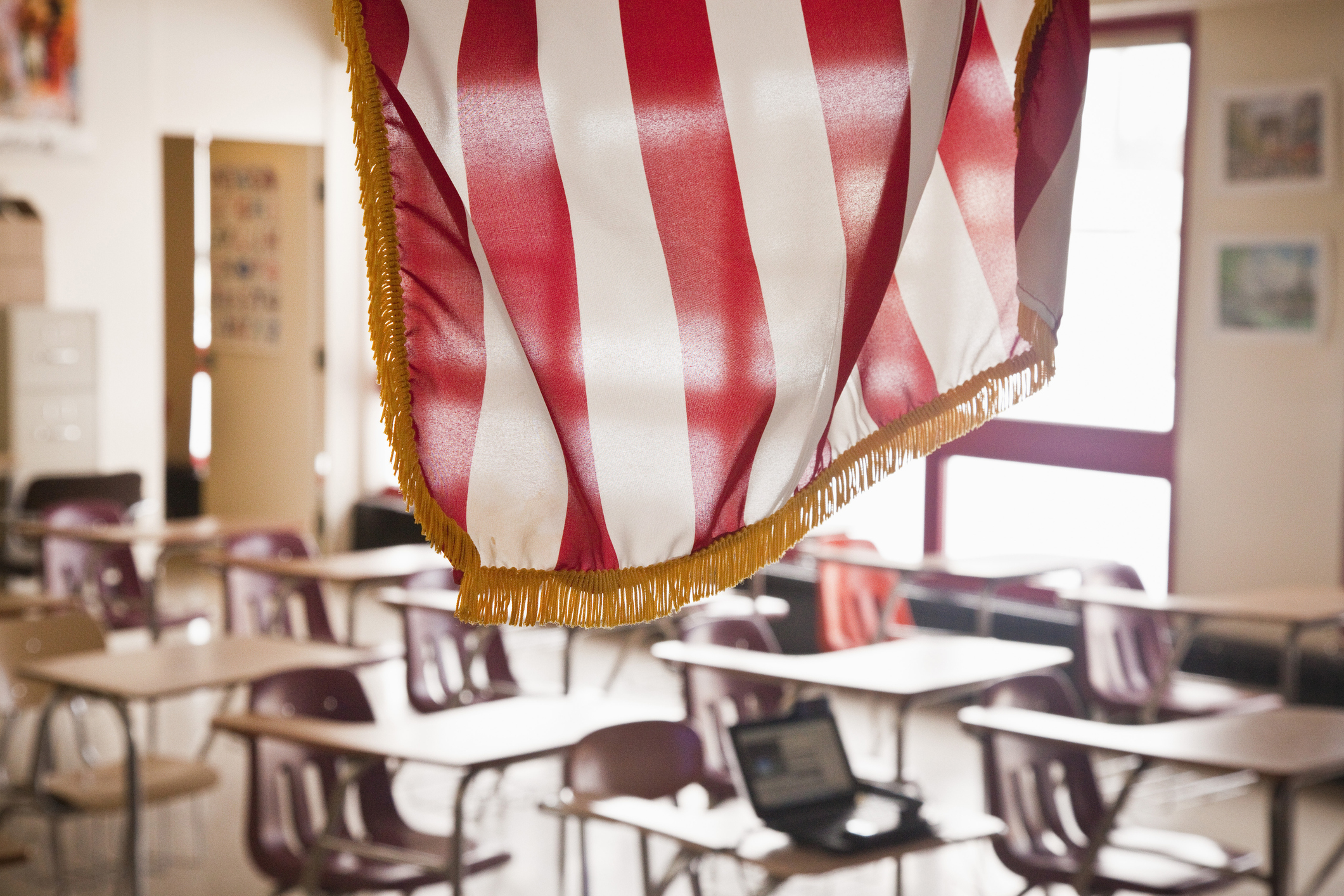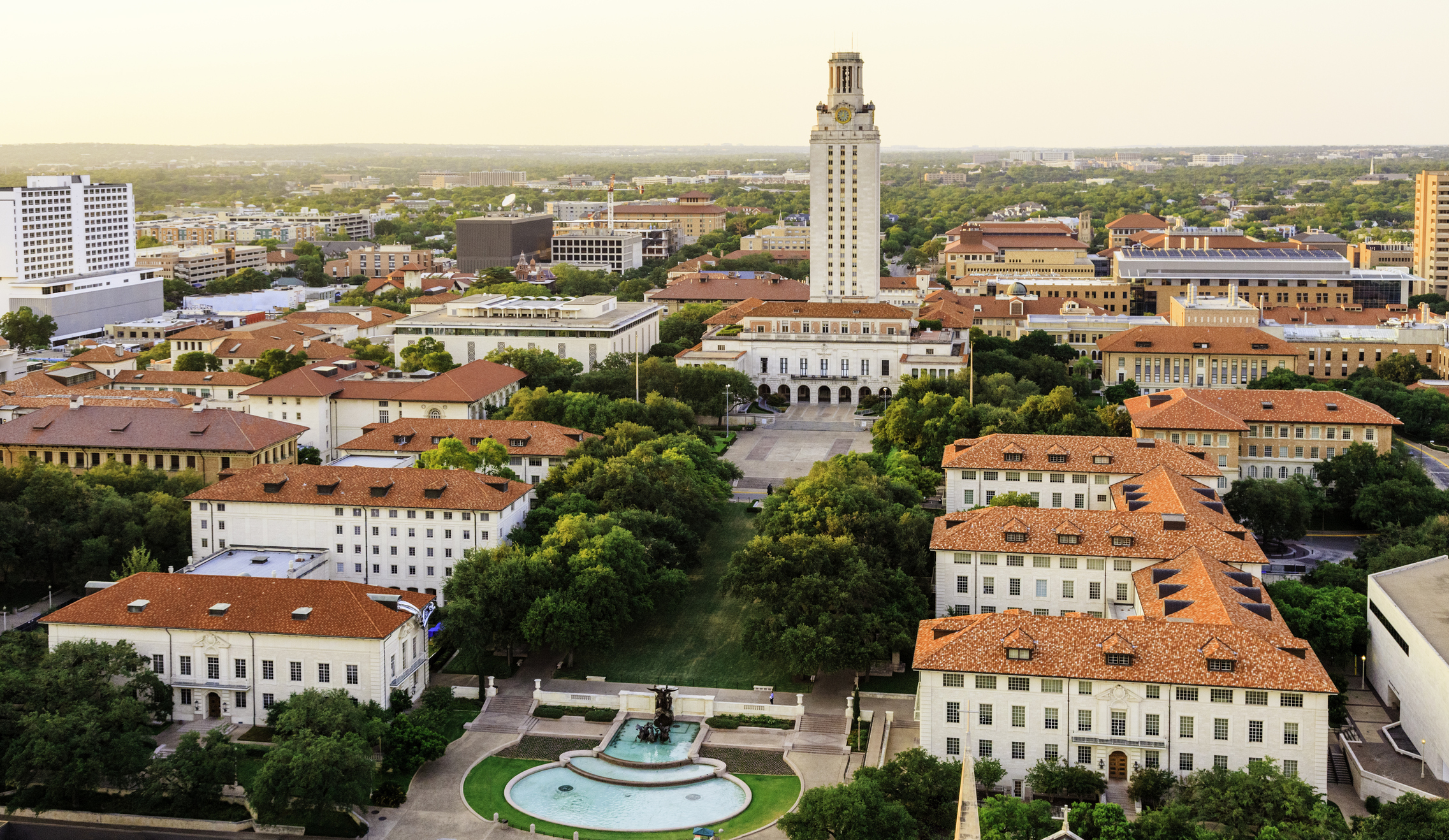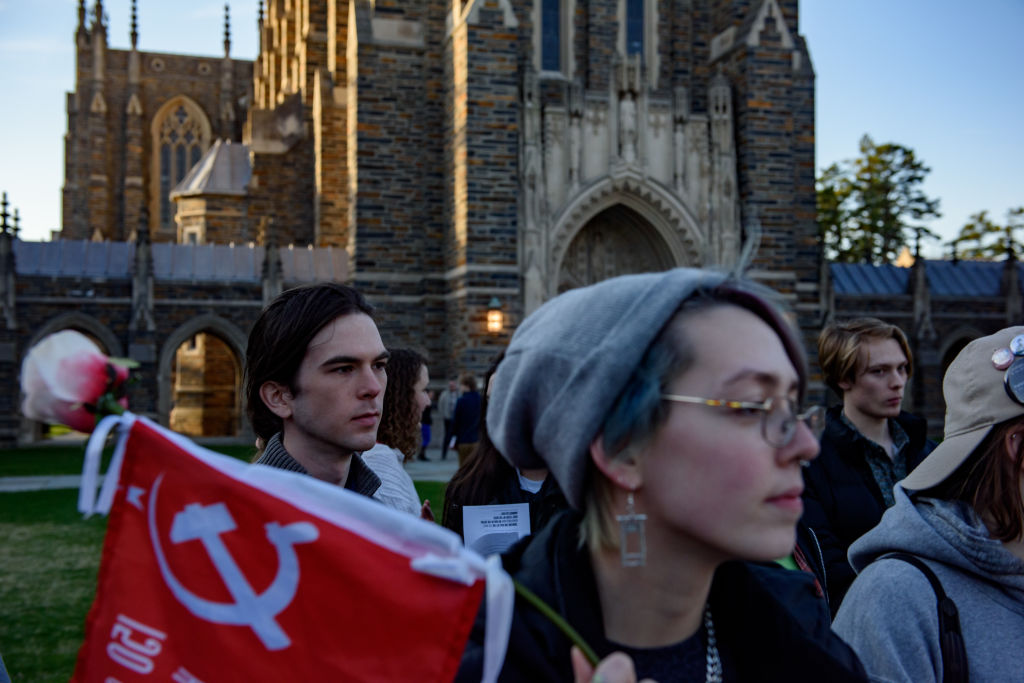Our K–12 students need guidance out of ignorance.
How to Reverse Higher Ed’s Decline

A bold plan for education reformers.
At long last, American education reformers are beginning to build a network of history and government professors who are dedicated to teaching, not advancing a radical political agenda. Private institutions such as the Jack Miller Center have brought together a cohort of tradition-minded professors, both liberal and conservative. Now, public support has led to the creation of new civics institutions at public universities to house these professors, where they can teach a new generation of Americans, especially K-12 social studies teachers, about the true nature of the ideals and institutions of America and the West. Arizona, Florida, North Carolina, Ohio, Tennessee, and Texas will soon be producing professors who love learning and love their country and can reclaim their professions.
But we need a great many more traditional-minded professors—and we have to build their numbers up from near zero. How can we achieve this goal from such a desperately bad starting position?
Education reformers should look to educate ten percent of the total number of professors in history and political science—that is, 1,800 historians and 1,500 political scientists—to staff our nation’s colleges and universities. If we could grant PhDs to 100 historians and 100 political scientists each year, we could reach that number within a generation. These new professors would concentrate in areas such as (American) political history and political thought in order to make up a good-sized proportion of those smaller subdisciplines.
But what educational infrastructure would we need to do that?
Let us say that we need 20 programs, with ten apiece in history and political science, each of which grants 10 PhDs a year. A program that graduates 10 PhDs a year should have a minimum of 15 professors—and that assumes a programmatic focus on producing PhDs in large numbers. For these 20 programs, therefore, we need at least 300 professors—and perhaps substantially more.
We will have to achieve that goal in several cycles of expanded capacity. The first handful of programs must educate the PhDs who will staff the next wave of programs, and it will take several academic generations, or 20 years, to supply enough PhDs to staff at the 300-at-20 level. Practically speaking, the pipeline limitation suggests it will take education reformers then another 20 years to reach the 1,800 and 1,500 levels respectively. And this calculation assumes that the professors at these institutions can maintain a minimum degree of instruction devoted toward training new PhDs, when realistically they must expect extraordinary pressures to devote their time to teaching undergraduates and MA students.
The pipeline limitation threatens to disrupt the once-in-a-lifetime focus on education reform among traditional-minded Americans. We have a chance to establish a great many reform-minded institutes now—but what if we delay because we cannot even staff the ones we have? The prudent desire to wait to create new institutions until we have the PhDs to staff them may mean that we miss the occasion. The political will may not endure. Nothing succeeds like success; nothing fails like caution. Such caution now would be an odd overconfidence that we can sustain an insurgent movement that is already starting at such a disadvantage.
Pour les vaincre, said Georges Danton, il nous faut de l’audace, encore de l’audace, toujours de l’audace, et la France sera sauvée! Loosely translated, American higher education can only be saved by daring—and a slow and steady 40-year plan has many virtues, but daring ain’t among them.
What American education reformers need is a crash program to locate and prepare 300 people to teach full-time in these new schools within five years. These 300 must be prepared to work anywhere in the country, wherever state policymakers establish an independent institute. Three-hundred professors who are only willing to teach at Harvard or Princeton does us no good.
If we have those 300 professors in place now, education reformers can work at full steam to set up these independent schools, and we can realistically aim to have educated ten percent of the history and political disciplines in 25 years.
Education reformers should think creatively to get those 300 professors. Possible means include:
- Seeking out the refugees: Many tradition-minded PhDs gave up trying to get jobs in academia and sought other careers. Many of these would be glad for a chance to teach. Education reformers should seek out every such PhD who got his degree in the last generation.
- Looking abroad: Some tradition-minded PhDs have found jobs abroad. Some foreign universities educate excellent prospective PhDs. Education reformers might contact like-minded individuals at places such as the University of St. Andrews in Scotland, the Mathias Corvinus Collegium in Hungary, and the Herzl Institute in Israel, to add the best academics in the world to the list of prospective faculty.
- Establishing generous scholarships: PhD students will require full scholarships and stipends, with the explicit expectation that they will be prepared to teach in one of these new schools. This will be expensive—it will likely take $250,000 to support one student for five years of study. Educating students in traditional programs also risks throwing away money on some who either will be poisoned by wokeness or softened to preemptively surrender to much of the woke agenda. This means that such scholarships should only be established with careful safeguards.
- Setting aside the PhD requirement. The primary requirement for these new schools is faculty who teach well, not research scholars. Why not dispense with the PhD requirement entirely? Seek out the best and the brightest who know the material, can teach it well, and have enough self-confidence to forego the indoctrination that accompanies the PhD credential. If a credential is needed, create one that can be offered by policy institutes and other organizations outside of the universities.
Education reformers should consider all of these means, and others that come to mind. We need to overcome the faculty bottleneck now. Get those 300 professors within five years, so we can staff our 20 institutes.
When we have those faculty and institutes in place, we can begin the campaign to reclaim our universities.
The American Mind presents a range of perspectives. Views are writers’ own and do not necessarily represent those of The Claremont Institute.
The American Mind is a publication of the Claremont Institute, a non-profit 501(c)(3) organization, dedicated to restoring the principles of the American Founding to their rightful, preeminent authority in our national life. Interested in supporting our work? Gifts to the Claremont Institute are tax-deductible.
Universities must not set speech codes in the name of tolerance.
Taxing universities is key to solving our student debt mess.
The Fairness in Higher Education Accreditation Act attacks wokeness at its core.
Well-meaning Americans are being suckered into an illiberal political cabal.
A new project lays bare the use of public funds to promote hateful discourse.






